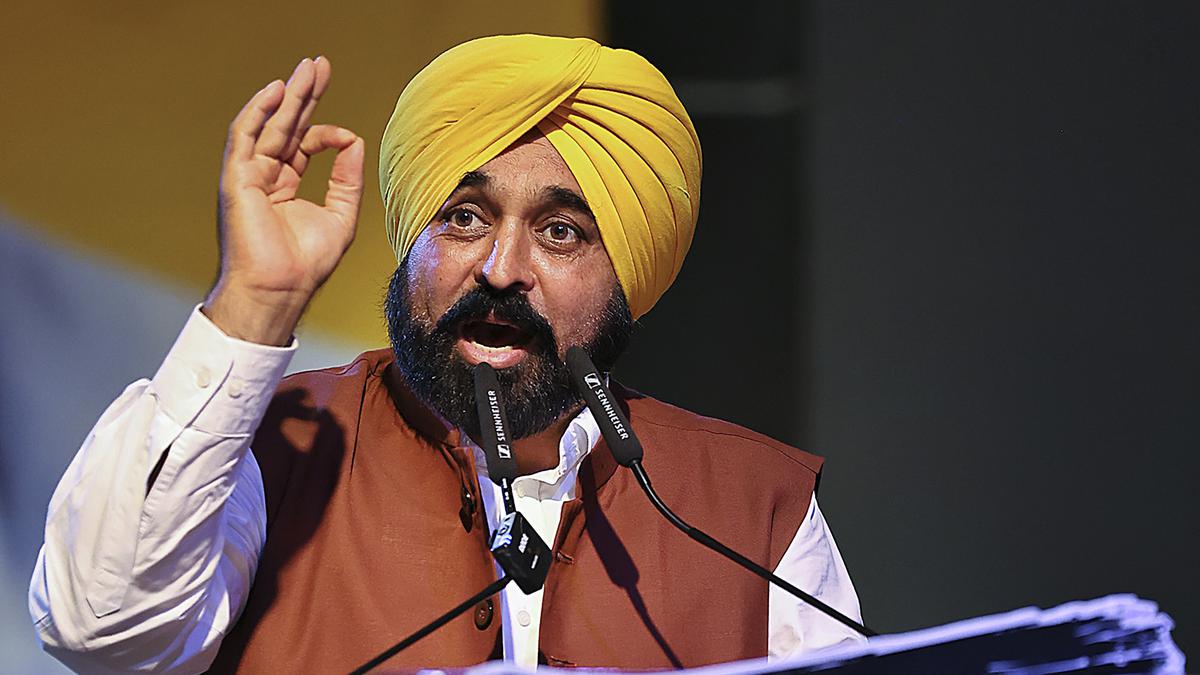
Analysis| AAP’s flip-flop on panchayats in Punjab reflects poorly on govt.’s style of working
The Hindu
On August 10, the Punjab government issued a notification dissolving all gram panchayats, panchayat samitis, and zila parishads in the State. Days later it reverted its ‘technically flawed’ decision. Soon after the notification, the government faced stiff resistance to its decision from the Opposition, including the Congress, the Shiromani Akali Dal (SAD), and the Bharatiya Janta Party (BJP), as they termed the decision ‘unconstitutional’.
As if the flip-flop by the ruling Aam Aadmi Party (AAP) government in Punjab by first dissolving all panchayats across the State, and days later reverting its ‘technically flawed’ decision was not enough to its embarrassment, its attempts to shift the blame on the bureaucracy appears to have reflected poorly on the government’s style of working.
On August 10, the Punjab government issued a notification dissolving all gram panchayats, panchayat samitis, and zila parishads in the State. The order also stated that the general election of the members of panchayat samitis and the zila parishads, shall be held by November 25, 2023, and of the gram panchayats, shall be held by December 31, 2023.
Soon after the notification, the government faced stiff resistance to its decision from the Opposition, including the Congress, the Shiromani Akali Dal (SAD), and the Bharatiya Janata Party (BJP), as they termed the decision ‘unconstitutional’. The government did not budge and kept defending its decision even as the decision was challenged in the Punjab and Haryana High Court. The government asserted that the dissolving order on panchayats was in accordance with constitutional provisions as the government had the constitutional duty and power to hold the elections of Panchayati Raj Institutions under Section 209 of the Punjab Panchayati Raj Act, 1994.
There are 13,241 gram panchayats, 152 block samitis and 22 zila parishads in Punjab.
However, on August 31, during the hearing of the matter in the High Court, the State government took a U-turn, and announced withdrawing the notification. The Opposition parties termed it as a victory of democracy, leaving the government red-faced. Later, in what appeared to be a face-saving exercise by the government, the entire onus for the fiasco was put on the bureaucracy. By the evening of August 31, the State government suspended two senior IAS officers including Dhirendra Kumar Tiwari, Principal Secretary (Rural Development-Panchayats) and Gurpreet Singh Khaira, Director (Rural Development-Panchayats). In a statement, Rural Development and Panchayats Minister Laljit Singh Bhullar said the State government has suspended the principal secretary and director of the rural development and panchayats department with immediate effect for taking a “technically-flawed” decision regarding the dissolution of panchayats.
This entire episode, a few political observers and public representatives feel has put the style of government’s functioning in a bad light. “On its very face, it appears that the government has not handled the situation in a professional manner. The entire episode has brought an embarrassment to the government and its style of functioning,” said Kehar Singh, former head of the Department of Political Science, Punjabi University.
Pointing out that dissolving the panchayats and later withdrawing the decision reflected the government’s incompetency, Mr. Singh said that further, the decision to suspend two IAS officers was perhaps an attempt to evade the embarrassment by the ruling political leaders at the helm of the affairs, which again could not be appreciated.





















 Run 3 Space | Play Space Running Game
Run 3 Space | Play Space Running Game Traffic Jam 3D | Online Racing Game
Traffic Jam 3D | Online Racing Game Duck Hunt | Play Old Classic Game
Duck Hunt | Play Old Classic Game











